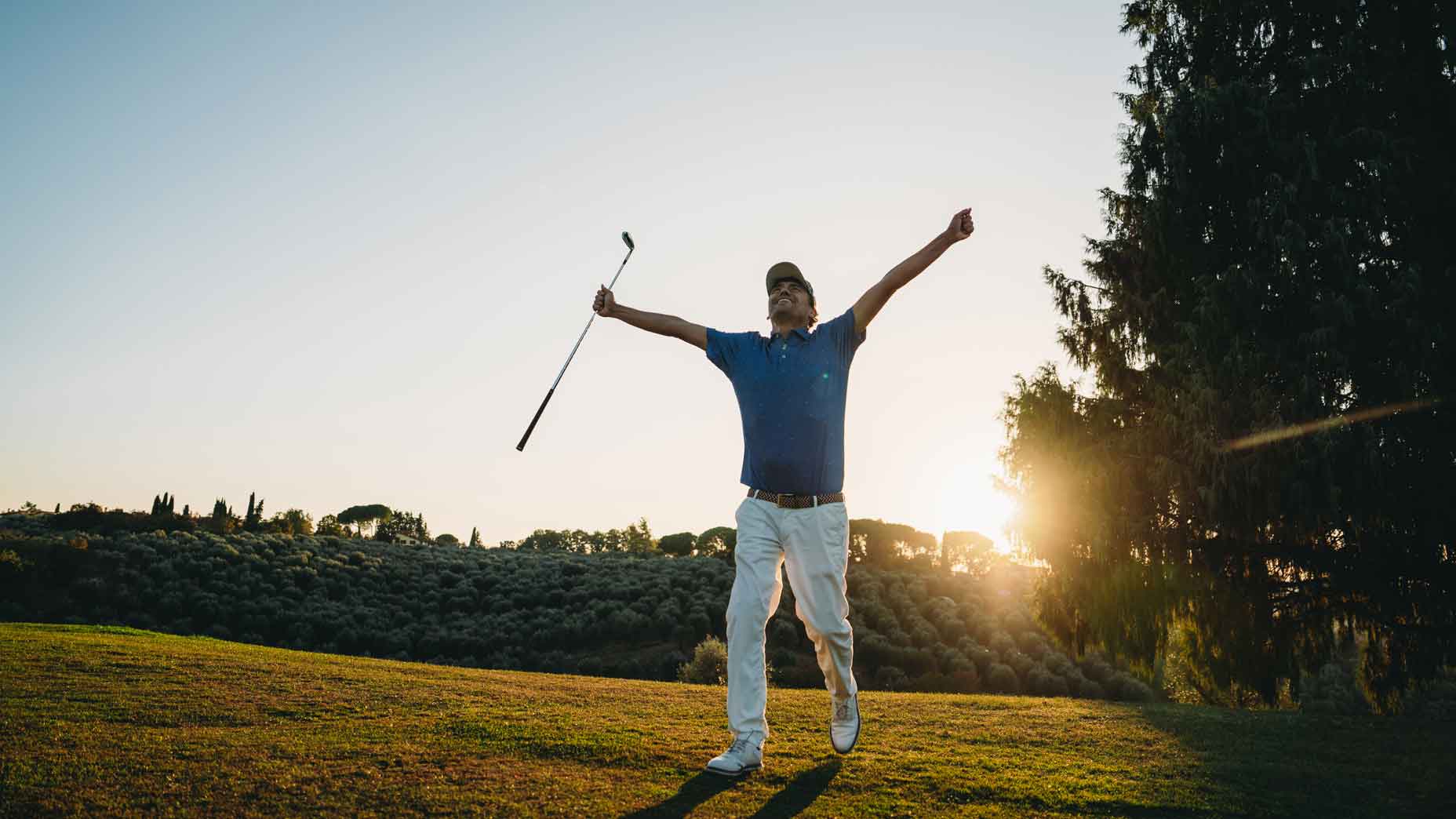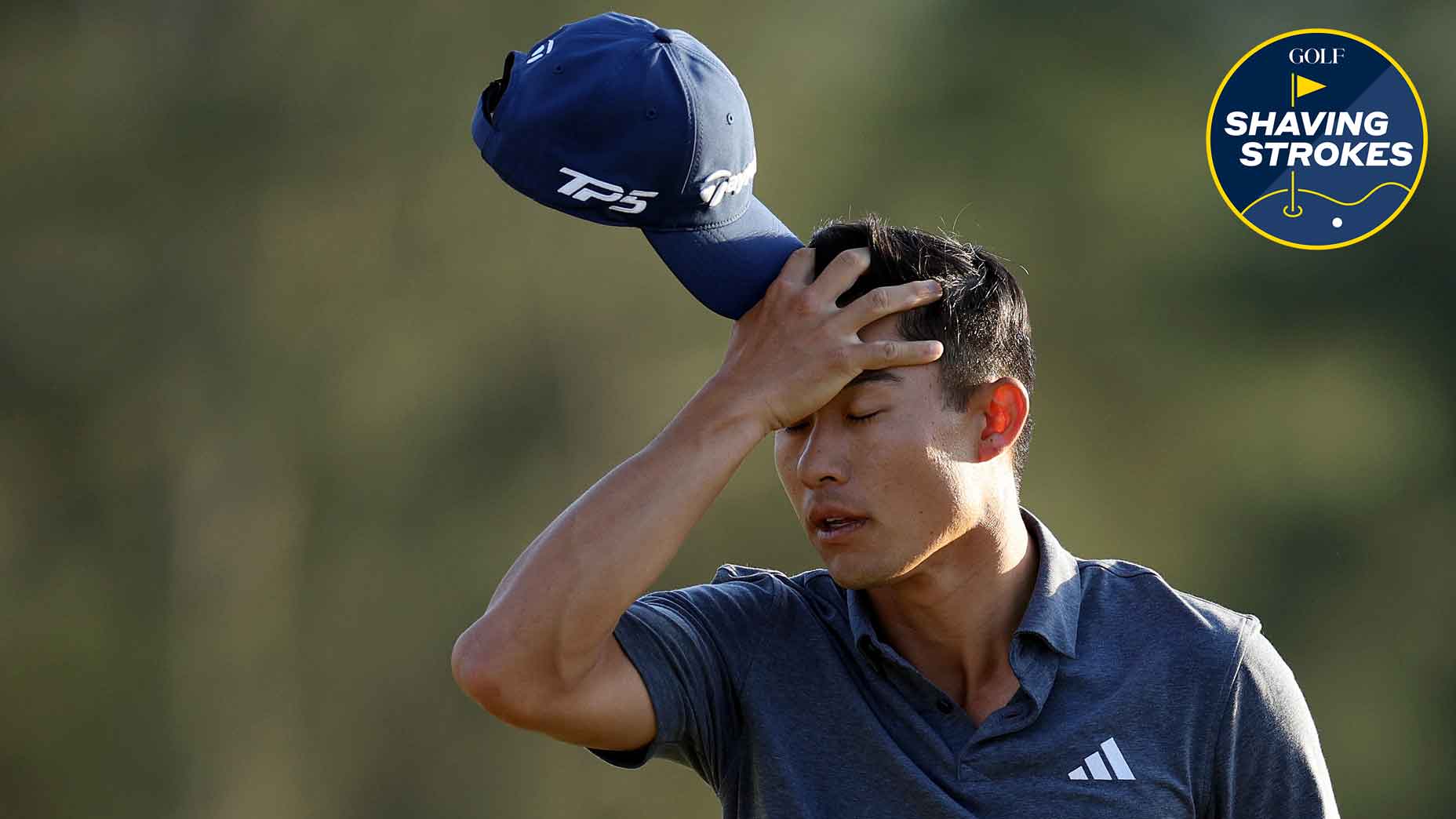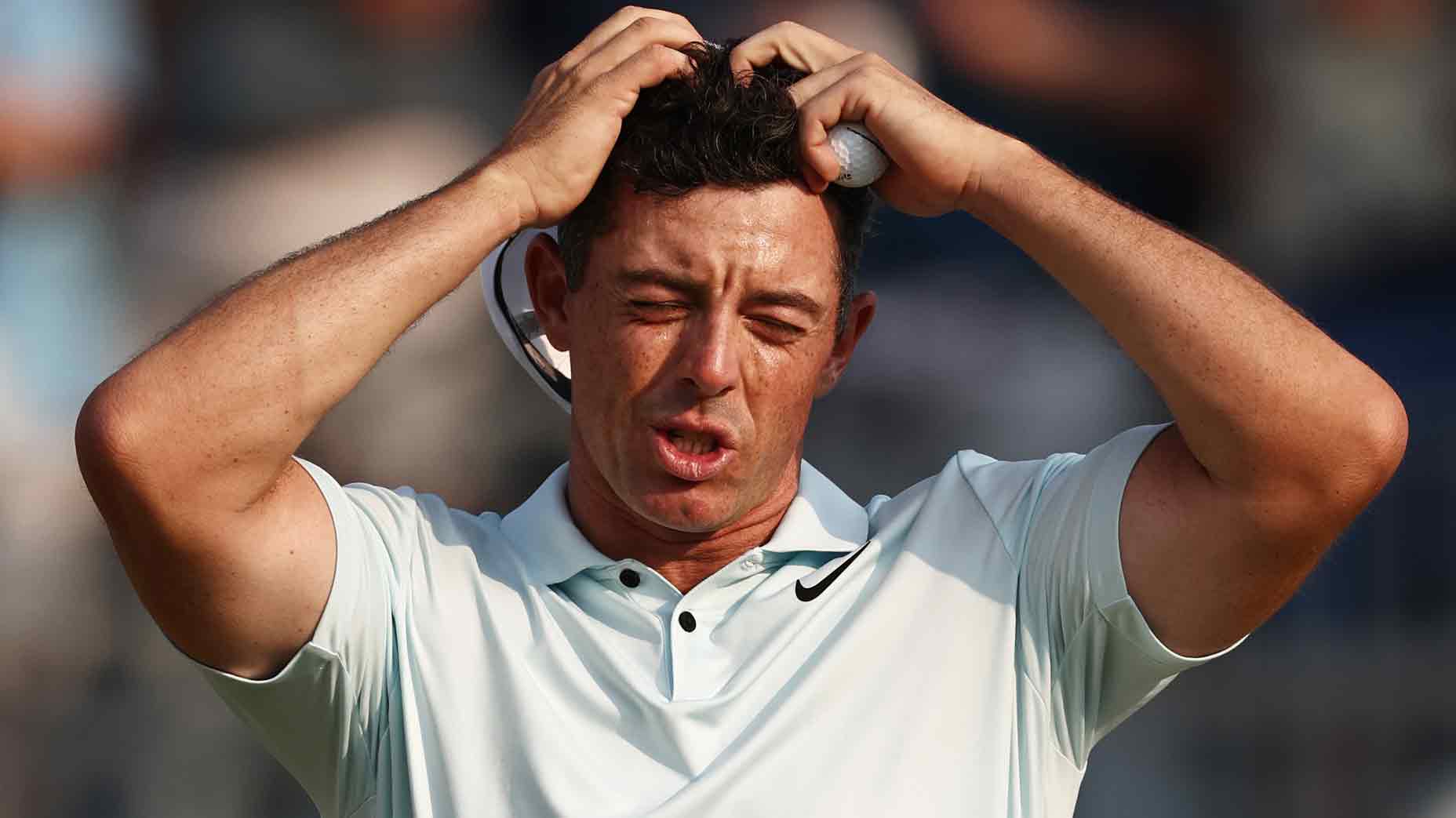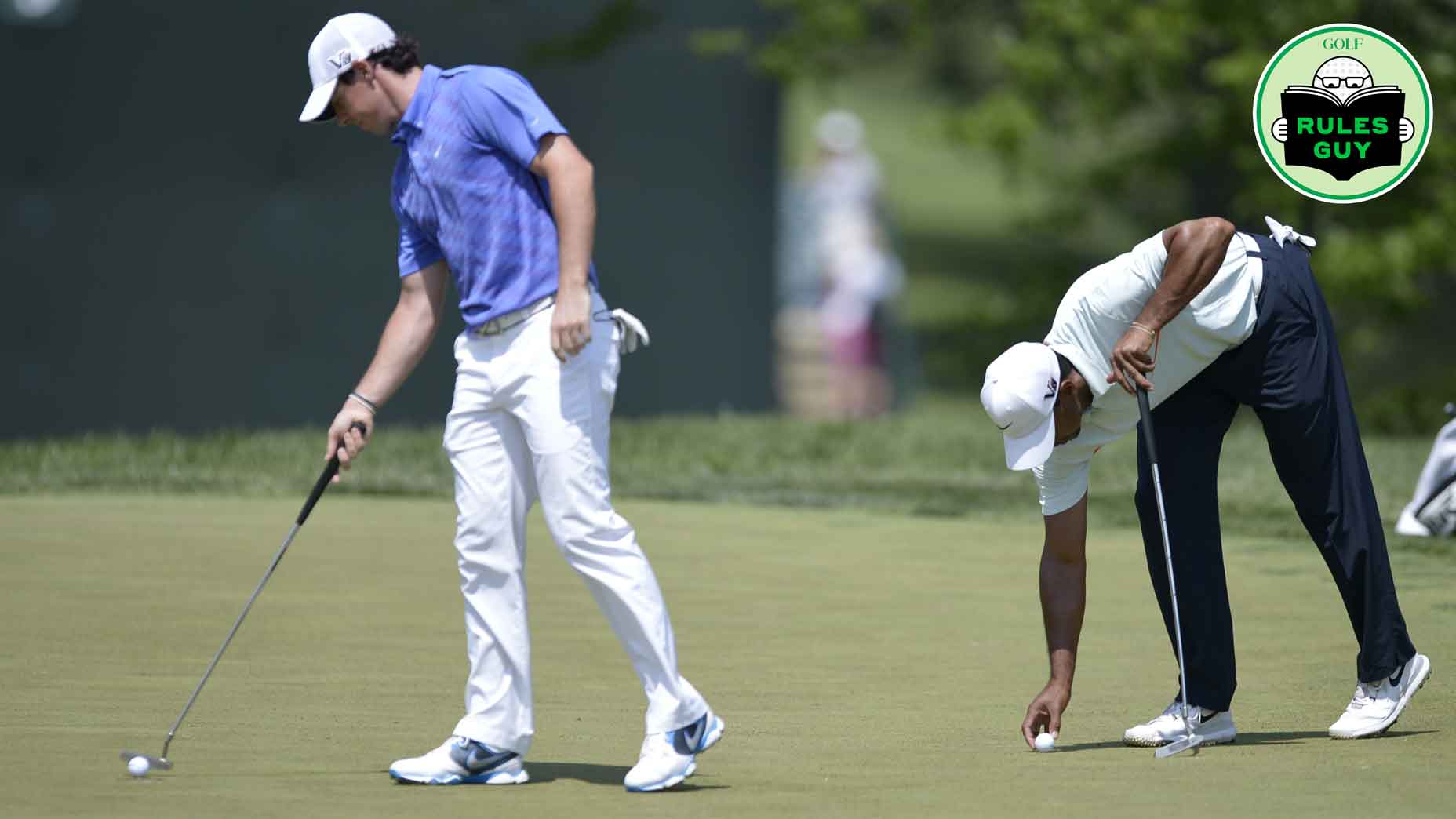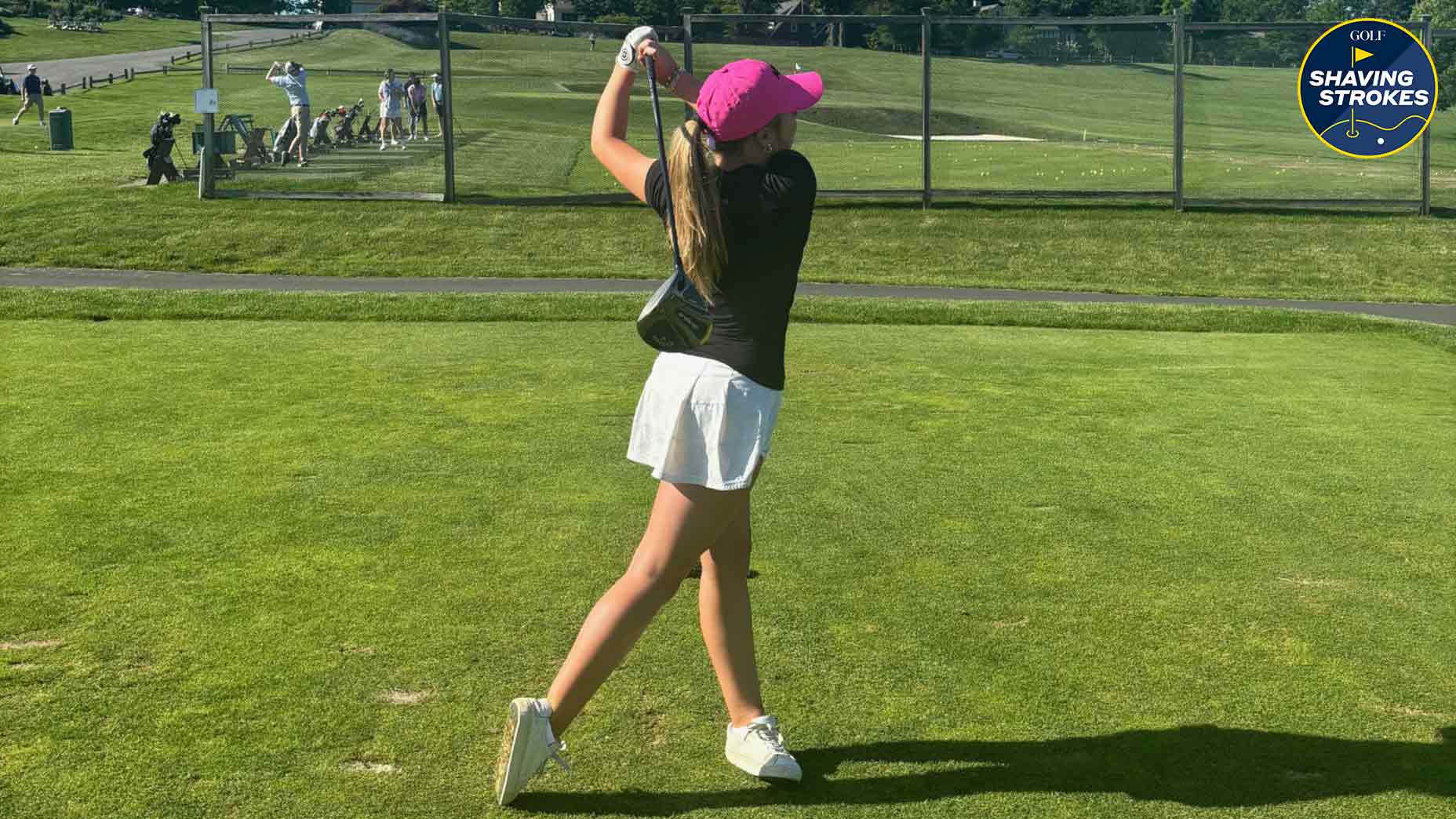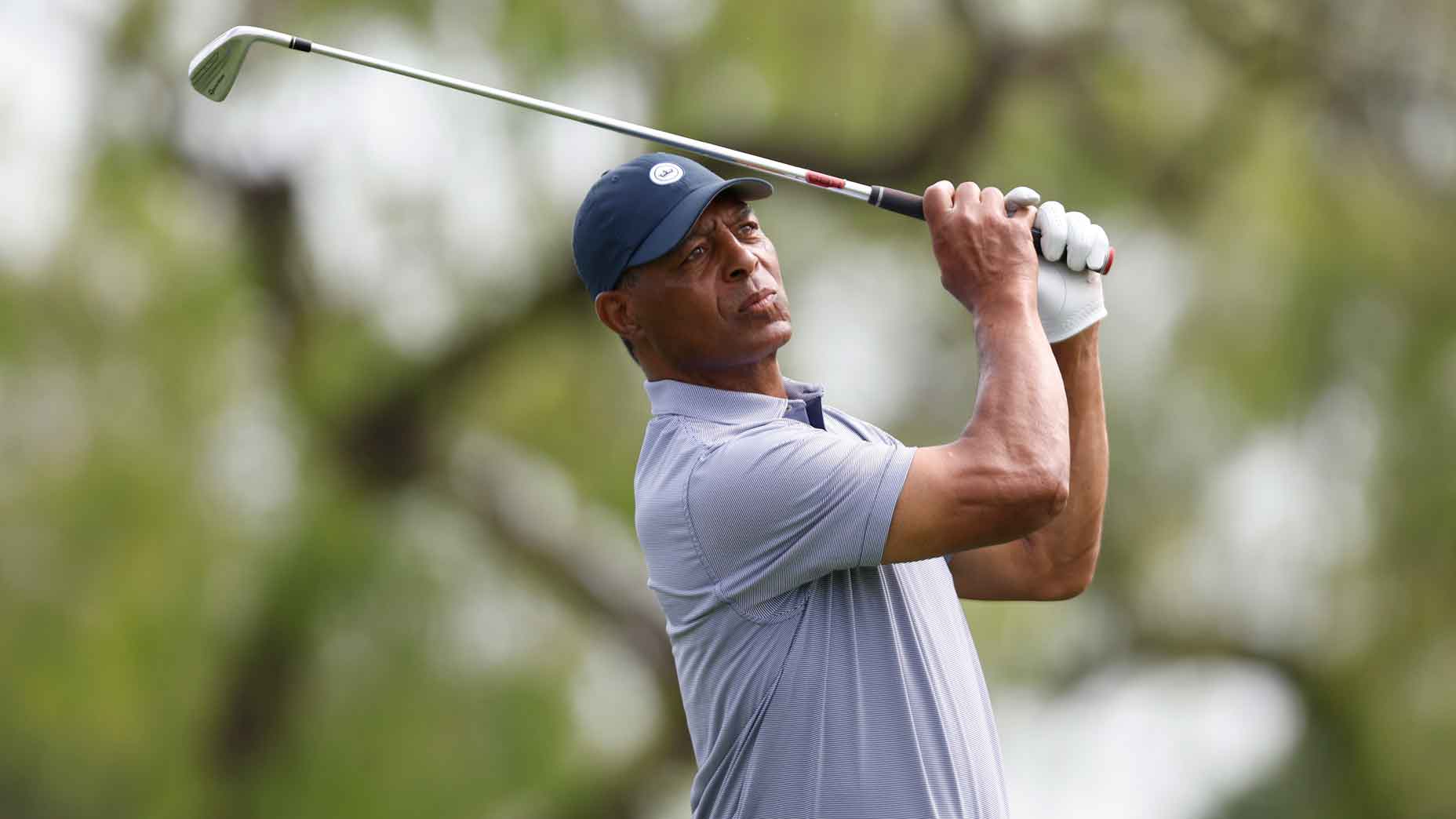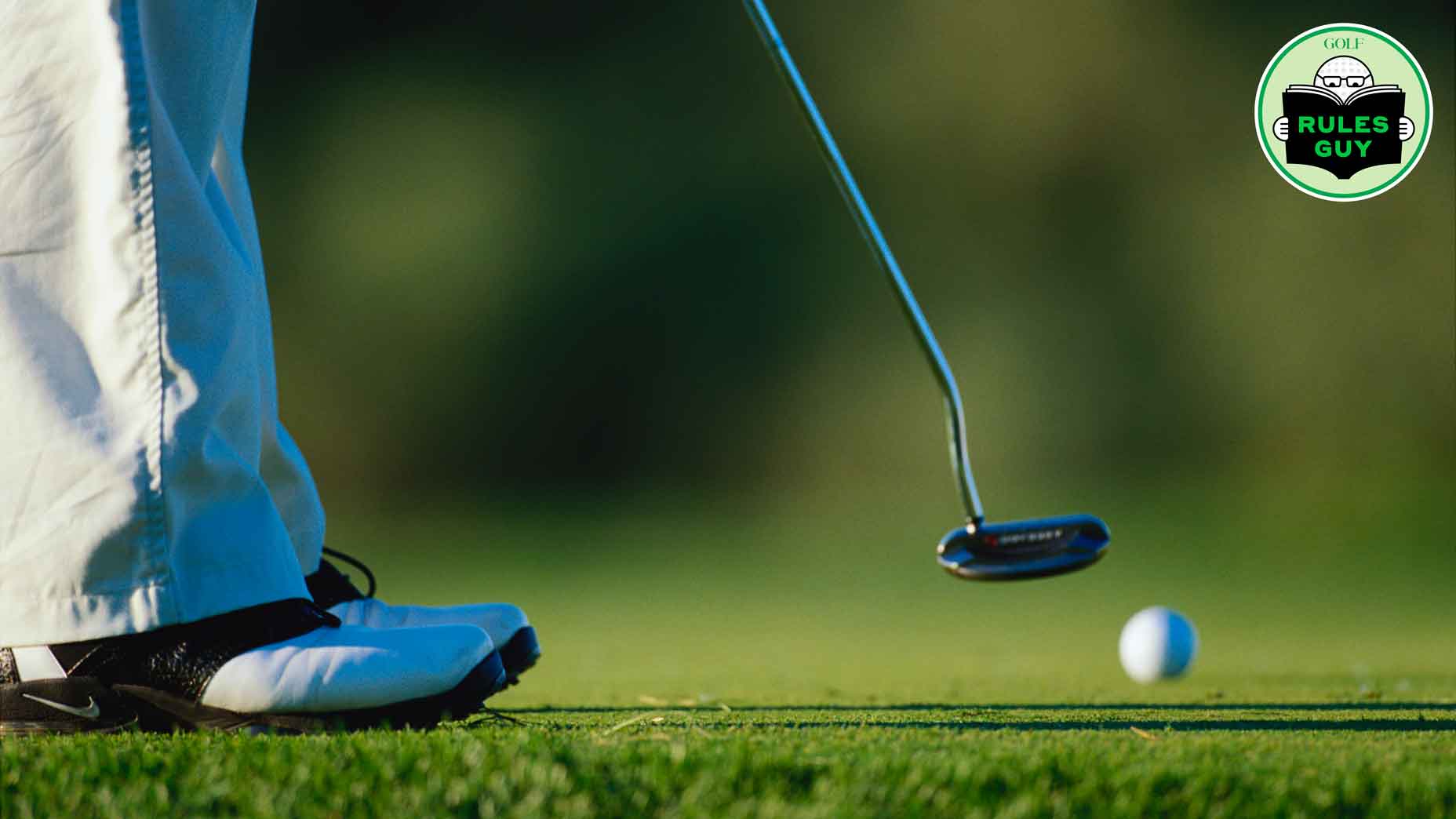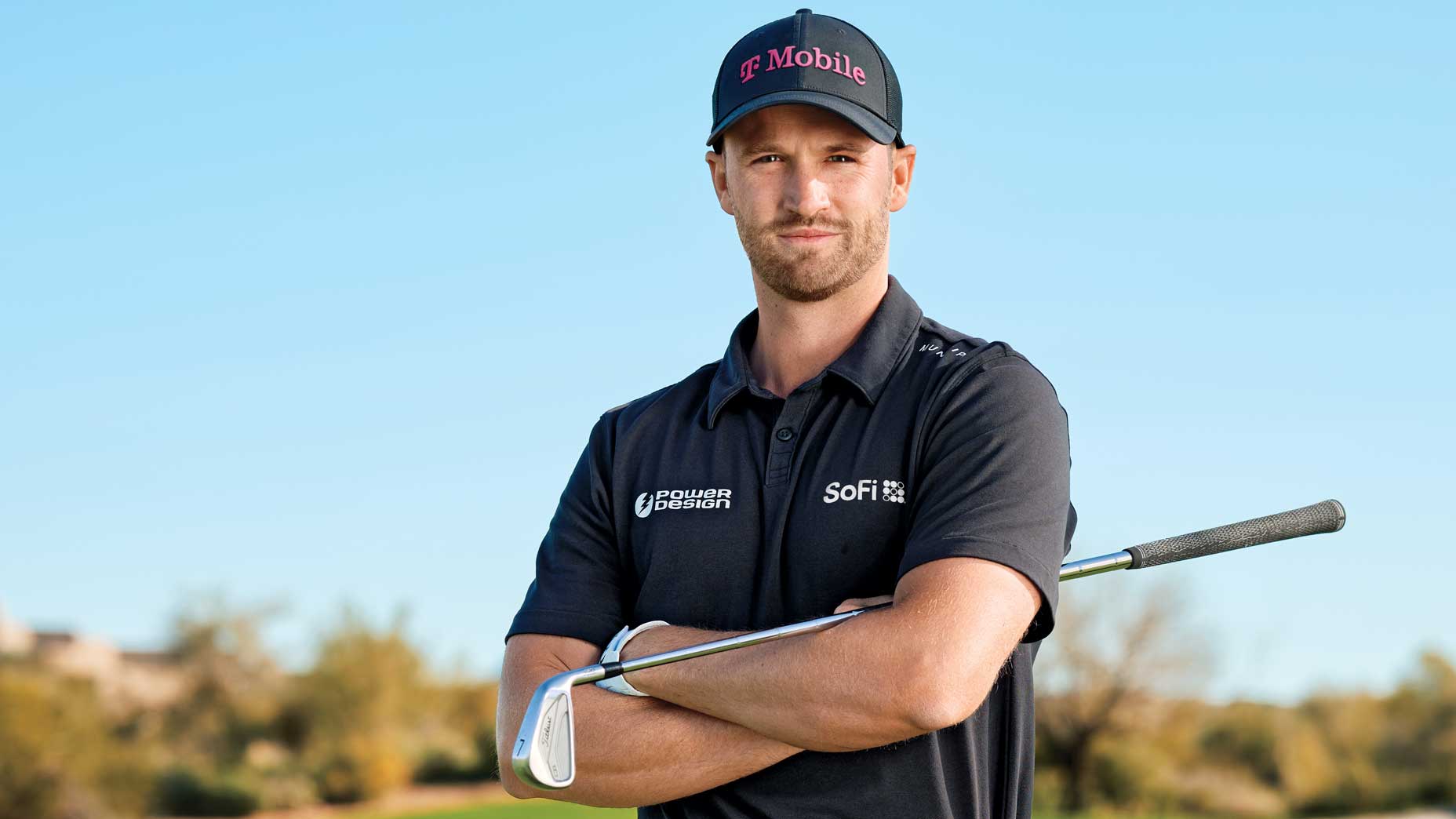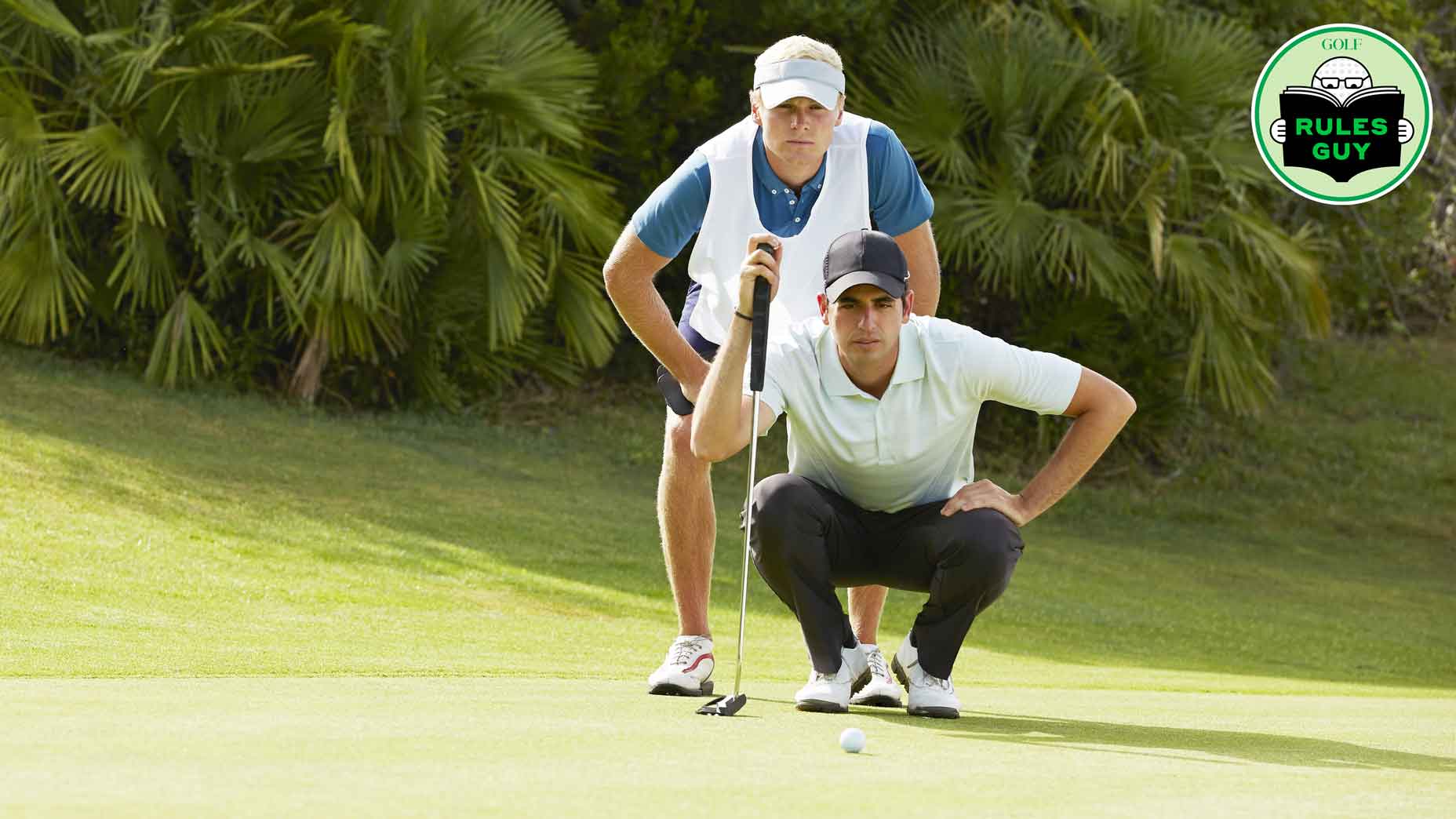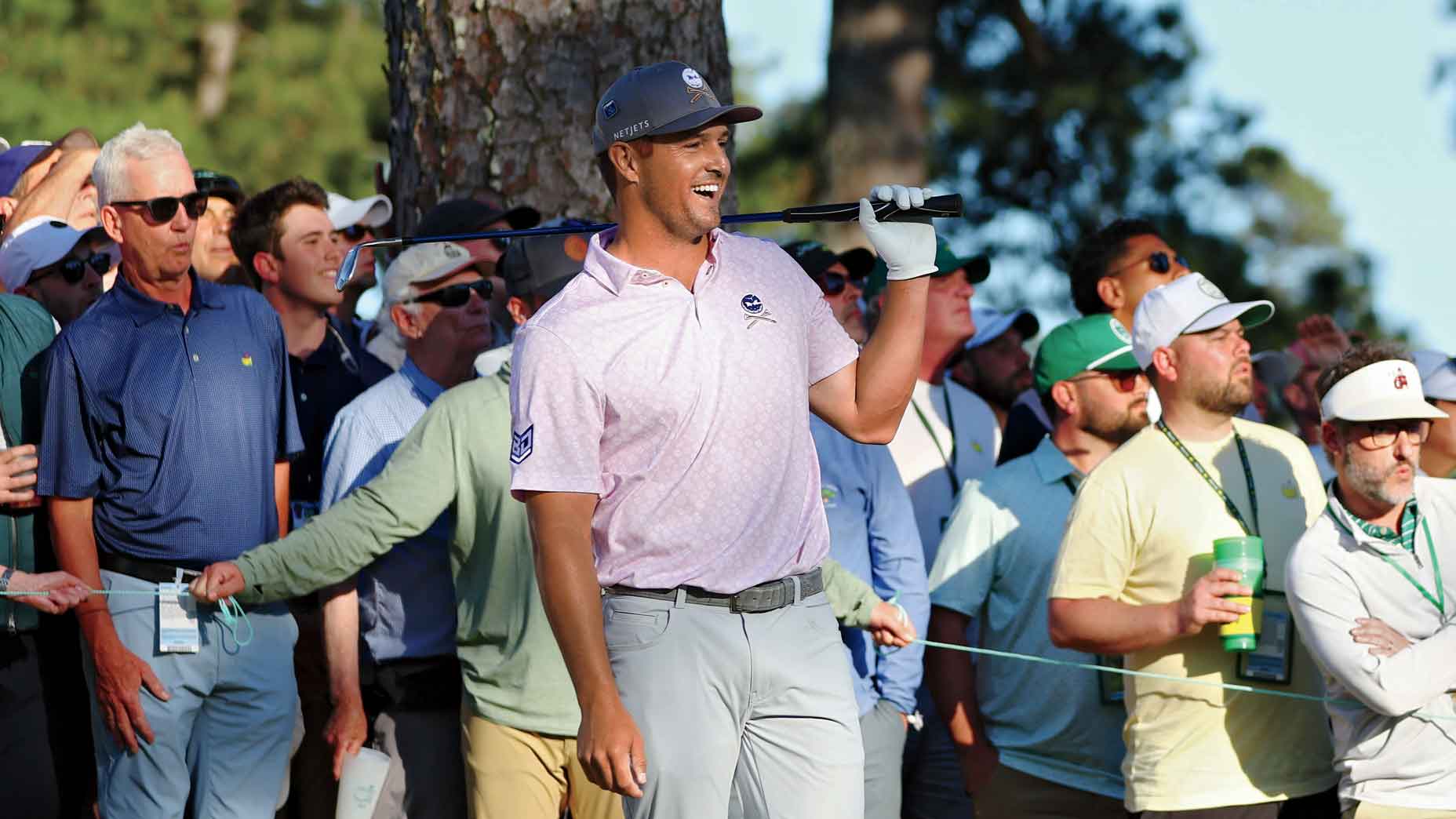Top Tour mental-game coach shares how to trade anxiety for serenity

Accepting your emotions — not controlling them — is the key to saving aggravation and strokes, says Julie Elion.
Getty Images
If a wayward drive on the home hole has the ability to ruin your weekend round, just imagine what a similar shot does to a Tour pro’s blood pressure.
Well, at least that’s what we think happens. It’s logical: Those who play golf for paychecks surely must care more about shots and scores than recreational players.
In fact — and this may come as a surprise — professional golfers actually care less in some ways. Turns out, card-carrying members of the PGA Tour aren’t just better than you and me at splitting fairways and sticking approach shots; they’re also far superior at separating their swings from their scores. It’s a legitimate superpower that’s as valuable as any other in the game.
Days before winning his second Masters this April, Scottie Scheffler talked about his mindset during competition. “I’m mostly focused on my mental attitude,” he told the media. “I’m not looking at results.”
Scheffler went on to say that he channels any nerves that may bubble up inside of him during a round into laser-focus, concentrating on process instead of pars or birdies.
That’s easy to say when, like Scheffler, you have a knack for going low, but trust me: You can take him at face value on this one. Process is something I discuss with my golfers every week. It’s critical.
I want you, like them, to focus on your pre-shot routine and the intention of hitting every shot with absolute commitment. These two things are completely within your control. From there, all outcomes should have equal impact on your mood and attitude, because once the ball lands there isn’t an emotion or expletive-laced reaction that can change your lie or distance. When you disaggregate what you do from what the club, ball, wind, and turf did, you’ll trade anxiety for serenity, ultimately leading to smooth swings that operate almost on autopilot and save you aggravation and strokes.
There’s an important distinction here: I’m not suggesting that you try to control your emotions. That’s unrealistic. Rather, my advice is to accept them. That’s the heart of mindfulness, a concept popularized in meditation and written about extensively by Dr. Jon Kabat-Zinn, who defined it as “openhearted, moment-to-moment, nonjudgmental awareness.” (1). In sports, as in many other activities, mindfulness can feel like a true flow state. It’s why after a good round you might not remember much about how it felt to swing the club; the good shots just sort of happened.
Science and research backs this up in two ways. On one hand, studies have found that efforts to control our internal states don’t help us perform better, likely because they misdirect energy toward trying to do the impossible. On the other, researchers like Dr. Marc Bernier have found that mindfulness is strongly correlated with lower scores and higher rankings across a range of sports. (2) Negative feelings don’t have to have negative consequences, so long as we see them for what they are.
You can put this in play from tee to green, but accepting your emotions might matter most on the shortest shots. Putting is a simple stroke, made much simpler or complex by your thoughts. Think too much and you could pay the price in rhythm, contact or direction. When I speak to my players after practice rounds, they rarely remember which putts fell and which missed. But they can tell me how sharp their pace and line were that day. That tells me they were locked into what they could control, not what they couldn’t.
Important: Don’t mistake any of this for apathy! I want my players to be passionate, and I want you to be too. The trick is to tap your passion at the appropriate time, which is when you’re choosing a target, committing to it and envisioning the ballflight. This is how my PGA pros play their best, maximize their potential and remain focused from the first drive of the day to the last putt.
It’s hard to argue with success and even harder for golfers to argue with green jackets. Scheffler’s intention requires his full attention. When you hear a golfer with his swing mechanics say his mental approach is what he’s working hardest on at tournament time, take note. Happy golfers, like happy people, are committed to the process and agnostic about outcomes. This is the goal that makes all the others (i.e., birdies and wins) happen as if by magic.
So the next time you land a drive or an approach right where you intended to and one of your playing partners offers up something like “You couldn’t have placed it there any better,” simply smile, say thank you and bask in your newfound appreciation for one of golf ’s greatest inside jokes: Choosing where the golf ball comes to rest was never an option.
See you next month!
Julie Elion has worked with half of the top 10 earners of all time, representing over $500 million in career earnings, 150 PGA Tour wins and 25 major championship wins.
(1) KABAT-ZINN, JON. 2005. COMING TO OUR SENSES: HEALING OURSELVES AND THE WORLD THROUGH MINDFULNESS. HYPERION.
(2) BERNIER, MARC, ET. AL. 2009. MINDFULNESS AND ACCEPTANCE APPROACHES IN SPORT PERFORMANCE. JOURNAL OF CLINICAL SPORTS PSYCHOLOGY, VOL. 3, NO. 4, PP. 320-333.

